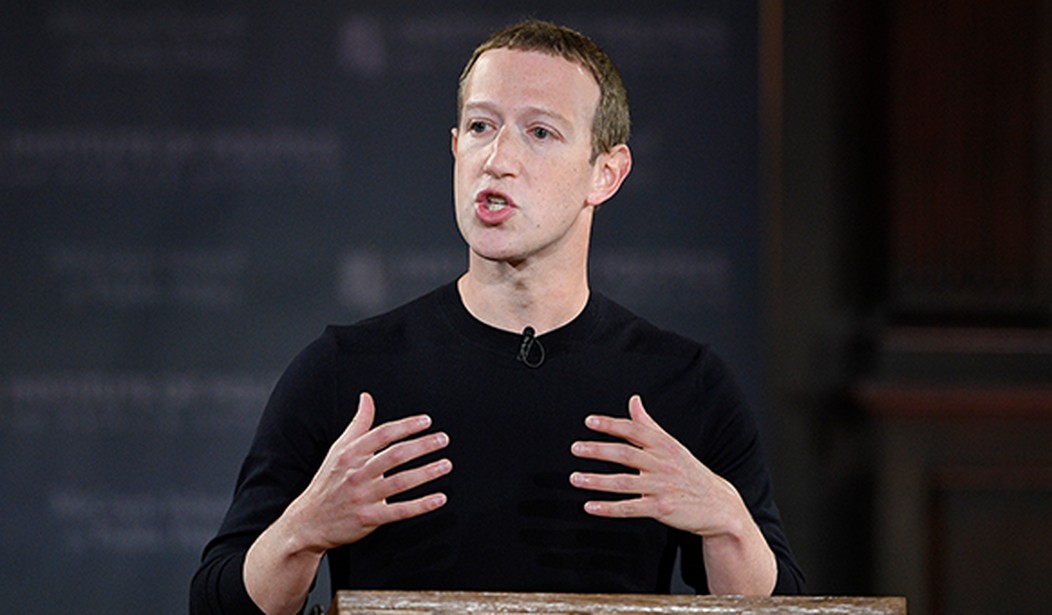Americans of all political persuasions and affiliations ought to be outraged and horrified with the actions of Big Tech over the past few years.
Far from a strictly left or right issue, the sheer power wielded by a handful of Big Tech titans located in Silicon Valley presents a dire threat to the future of the republic.
The story begins when Facebook, Twitter, and Google came of age in the mid-2000s. At the time, most Americans greeted these new technologies and social media platforms with open arms.
Free email? Sign me up. Free access to social media? Sure, why not?
Little did they know that these Big Tech giants were offering their services not for free, but at a steep price. The “price” almost anyone who uses Big Tech pays is in an utter lack of privacy.
Once upon a time, Americans were willing to go to war for the maintenance of their privacy. Now, the vast majority of Americans could not care less about their privacy rights, as long as Big Tech keeps the “free” services coming.
I wonder if Big Tech would have become as omnipotent as it has, had most people been aware that their privacy was the price they would have to pay for these trivial services.
Yet, what’s done is done. Although unbeknownst to millions of Americans at the time, almost everyone is now fully aware that Big Tech and privacy rights are antithetical to each other.
Regardless, most Americans have decided that convenience and participating in a virtual universe of their own creation is worth the price of admission.
Once the dragnet over Americans’ privacy was cast, there was arguably no turning back. We had entered into the age of Big Tech. And things would never be the same.
Before Big Tech became the information and communication superstructure that it currently is, most Americans routinely engaged with people from all walks of life. This “shared experience,” to some degree, helped maintain a cohesive social discourse.
The sudden rise of Big Tech blew that away. Facebook and Twitter perpetuated echo chambers, in which like-minded Americans siloed themselves off from the rest of society. Although this is not entirely a bad thing, it has certainly frayed the social fabric.
Interestingly, if one studies voting maps over recent years, this phenomenon of like-minded people living in close quarters has also occurred. That does not mean the rise of Big Tech is responsible for this demographic shift, but it probably abetted it.
However, this all seems quaint compared to what Big Tech has morphed into over the past few years.
The current iteration of Big Tech is much more like Big Brother, in the Orwellian sense.
Over the past few years, Big Tech has gone rogue. These corporations have become self-appointed referees within America’s societal discourse. They have become the arbiters of freedom of speech, silencing anyone who dares defy their ever-changing, often-contradictory speech codes.
This is unprecedented in American history and presents a grave threat to not only our freedom of speech. Big Tech possesses such clout and power that they can turn anybody’s life upside down for any reason whatsoever.
They can also basically terminate their competition, such as they did to Parler, with the flip of a switch. They can also de-monetize people, shadow ban them, and skew internet search results with their super-secret algorithms.
Big Tech simply has too much power.
Some might say they are private companies; therefore, they have the power to do as they please. Not true. Big Tech benefits greatly from Section 230 of the 1996 Communications Decency Act, in the form of a government-granted liability shield.
Big Tech, unlike every other media entity (and private company for that matter), is almost immune from lawsuits.
Furthermore, as we recently learned from the Biden administration, Big Tech and Big Government are now working together to quell “misinformation” pertaining to the COVID-19 vaccine.
The unification of Big Tech and Big Government presents the most compelling domestic threat this nation has faced in a very long time. Perhaps ever.
In 1844, the first telegraph message, from Washington, DC to Baltimore, was sent by Samuel F.B. Morse. At the time, the telegraph was the Big Tech of its day.
Interestingly, Morse chose this for the first message ever sent by telegraph in the United States: “What hath God wrought?”
Almost 180 years later, long after the telegraph was replaced by the telephone, Big Tech reigns supreme. Morses’ first-ever cable remains prescient, however, I would make one slight modification given today’s circumstances: “What hath Big Tech wrought?”
Chris Talgo ([email protected]) is senior editor at The Heartland Institute.














Join the conversation as a VIP Member